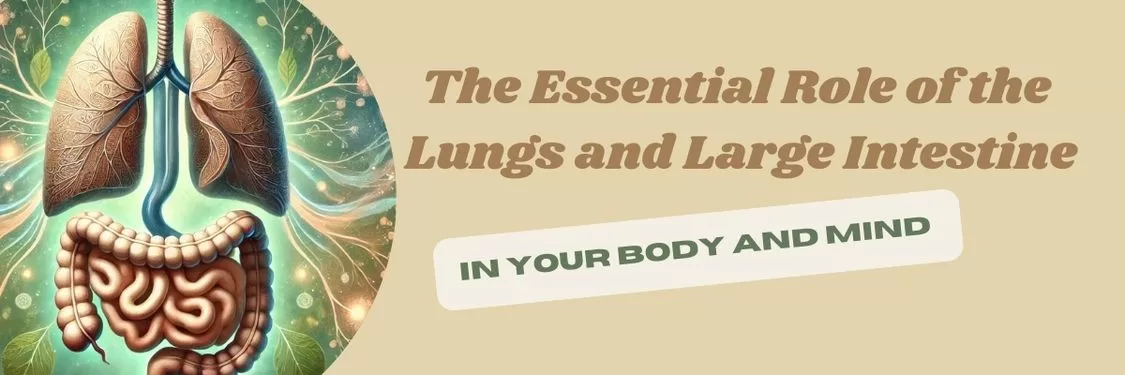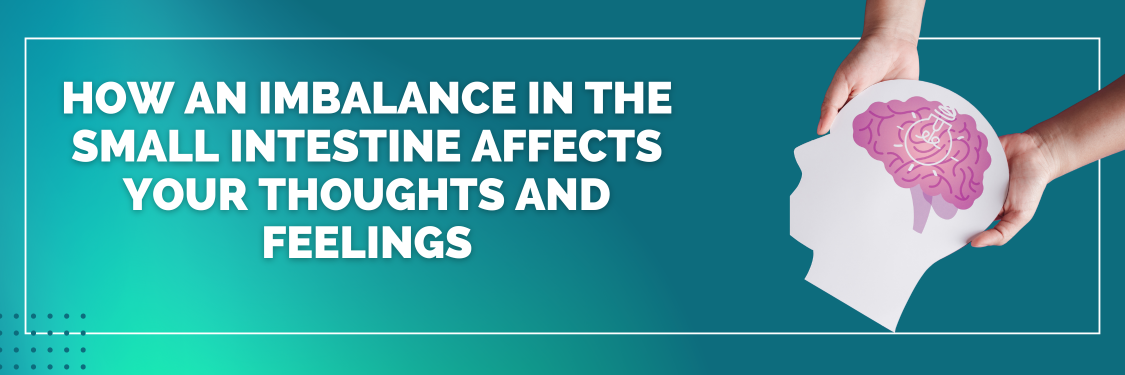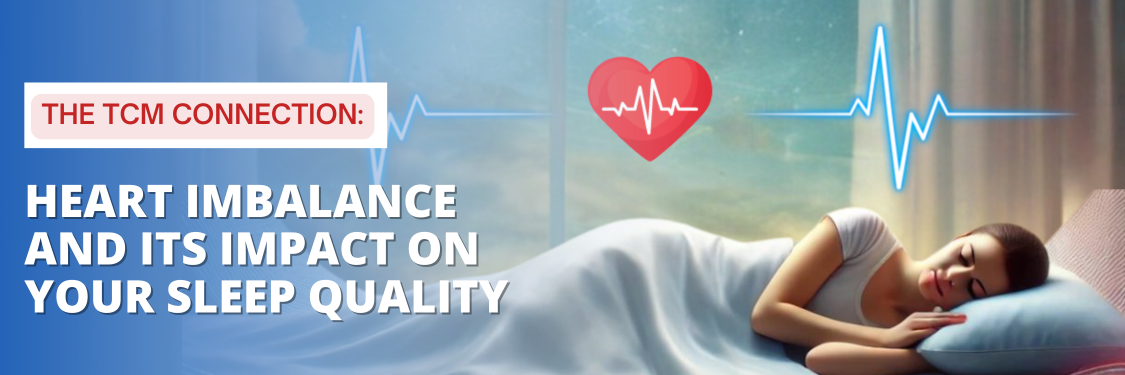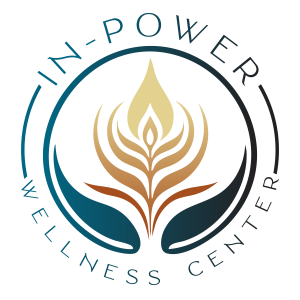-
 One Community
One Community
Acupuncture Center342 S Main St.
Unit 1 Lower Level
Bartlett, Illinois 60103(630) 837-4241 Hours
Mon3pm-7pmTue9am-1pmWed10am-1pm, 3pm-7pmFri10am-1pm, 3pm-7pmSat1pm-4pm
Follow Us!
- Sign up to receive news and updates and get my free report:“The Top 10 Reasons to Try Acupuncture”

-
Latest Articles:
- • Energy-Saving and Safety Tips for Winter Proofing Your Home •
- • Winter Wellness: Mental Health Tips for Beating the Winter Blues •
- • 10 Cozy Winter Activities to Enjoy Indoors •
Uncategorized
Large Intestine: Physical and Emotional Release

Do you often struggle with digestive discomfort, like constipation, diarrhea, or even colitis? In Traditional Chinese Medicine (TCM), the health of your large intestine plays a critical role in maintaining your overall well-being. But what happens when this key organ becomes imbalanced? TCM offers a unique approach to addressing digestive health, focusing on restoring harmony to your body through natural methods and mindful lifestyle changes. Let’s explore how understanding your large intestine might be the key to unlocking better digestive health.
In Traditional Chinese Medicine (TCM), the large intestine is an essential organ responsible for removing waste and toxins from the body. However, when imbalances such as dryness, damp-heat, or Qi stagnation occur, they can manifest as common digestive disorders like constipation, diarrhea, or colitis. By understanding the nature of these imbalances, TCM provides a holistic approach to restore digestive harmony and improve overall health.
Common Large Intestine Imbalances and Their Symptoms:
Dryness in the Large Intestine: Often linked to insufficient body fluids, this can result in constipation, dry stools, and a sense of bloating or discomfort. People with this imbalance may also experience dry skin and a general feeling of sluggishness.
Damp-Heat: This condition involves excessive heat and moisture in the digestive system, causing symptoms like diarrhea, foul-smelling stools, and abdominal pain. It’s often triggered by consuming spicy, greasy, or overly rich foods.
Qi Stagnation: When the flow of Qi (energy) becomes blocked in the large intestine, it can lead to digestive discomfort, bloating, and irregular bowel movements. Stress and emotional tension often exacerbate this condition.
TCM Treatment Strategies for Digestive Health
TCM aims to restore balance in the large intestine using a combination of acupuncture, herbal remedies, dietary changes, and lifestyle modifications. Here are some TCM-recommended treatments for common large intestine imbalances:
- Herbal Remedies:
- Slippery Elm Tea: This soothing herb is known for its ability to coat the digestive tract, reducing inflammation and easing discomfort. Drinking slippery elm tea regularly can help lubricate the intestines and relieve constipation.
- Organic Aloe Vera Juice: Aloe vera is well-known for its anti-inflammatory properties and can be incredibly beneficial in managing intestinal inflammation. Incorporating a small glass of organic aloe vera juice into your daily routine can promote healing in the digestive tract.
- Chamomile Essential Oil Compresses:
Chamomile is widely used in TCM to calm inflammation and soothe digestive discomfort. To make a chamomile compress:
- Add a few drops of chamomile essential oil to a bowl of warm water.
- Soak a soft cloth in the water, wring it out, and place it over your abdomen.
- Leave the compress on for 15-20 minutes to promote relaxation and ease intestinal cramps.
- Dietary Recommendations:
Avoid trigger foods that are known to irritate the digestive system, such as:
- Dairy: Can lead to bloating and worsen symptoms of inflammation.
- Gluten: Some individuals are sensitive to gluten, which can trigger inflammation and digestive distress.
- Processed Foods: These foods can be heavy on the digestive system and promote damp-heat in the intestines. Instead, focus on whole, unprocessed foods that are easy to digest.
- Lifestyle Tips for Better Digestive Health:
- Stress Management: Practice meditation or yoga to calm the mind and reduce Qi stagnation. Stress is a major factor in digestive health, and finding ways to manage it is crucial.
- Exercise: Engage in regular, moderate exercise to help move Qi throughout the body. Activities like walking or gentle stretching can improve digestion and alleviate bloating.
- Sleep: Make sure you’re getting enough rest! Adequate sleep is essential for healing and maintaining digestive balance. Aim for 7-9 hours of restful sleep per night.
- Epsom Salt Baths: Taking regular Epsom salt baths can help reduce inflammation, soothe muscle tension, and promote relaxation, all of which support a healthy digestive system.
By incorporating these treatments and lifestyle changes, you can support the health of your large intestine, ease discomfort, and bring balance back to your digestive system.
The Essesntial Role of The Lungs and The Large Intestine

In Traditional Chinese Medicine (TCM), the Metal element is associated with the Lung and Large Intestine organs. These two organs work together in ways that might surprise you, playing crucial roles in both your physical and emotional health. Understanding how they interact can offer powerful insights into maintaining balance and harmony within your body.
The Role of the Lungs in Governing Qi and Respiration
The lungs in TCM are responsible for governing Qi, the vital life force that flows through all living things. They are in charge of the process of respiration, allowing us to take in fresh air, which is then transformed into Qi that nourishes our entire body. The lungs also help to distribute this Qi throughout the body, ensuring that every cell receives the energy it needs to function properly.
Healthy lung function is essential for maintaining robust Qi circulation. When the lungs are strong and functioning well, they provide the body with ample Qi, which supports energy levels, immune function, and overall vitality. However, when lung function is compromised—whether by illness, poor air quality, or emotional stress—Qi can become stagnant, leading to fatigue, weakness, and a reduced ability to fight off pathogens.
The Large Intestine: The Body’s Waste Manager
While the lungs are busy governing Qi, the large intestine plays a vital role in the body’s elimination process. It’s responsible for absorbing water and minerals from digested food and then eliminating waste from the body. In TCM, this process of elimination is seen as essential for maintaining the purity and balance of the body’s internal environment.
When the large intestine is functioning well, waste is effectively removed, preventing toxins from building up and disrupting the body’s balance. However, if the large intestine is sluggish or imbalanced, it can lead to issues like constipation, bloating, and even skin problems, as the body struggles to rid itself of impurities.
Transpiration and Elimination: Key to a Healthy Mind and Emotional Body
The Metal element doesn’t just govern physical processes; it also has a profound impact on our mental and emotional well-being. In TCM, the lungs are closely connected to the emotion of grief, while the large intestine is associated with the ability to let go—whether that’s letting go of waste, emotions, or past experiences.
Transpiration—the process of the lungs exhaling carbon dioxide and other metabolic byproducts—helps clear not just physical toxins, but also emotional ones. When we breathe deeply and effectively, we’re not only nourishing our bodies with oxygen but also supporting mental clarity and emotional balance. Similarly, the process of elimination through the large intestine allows us to let go of what no longer serves us, both physically and emotionally.
When the lungs and large intestine are in harmony, our mental and emotional states are more likely to be balanced. We can process grief, let go of past hurts, and move forward with a clear and focused mind. However, when these functions are impaired, we might find ourselves holding on to negative emotions, feeling mentally foggy, or struggling with issues like anxiety and depression.
Understanding the intricate relationship between the lungs and large intestine within the Metal element in TCM offers a holistic perspective on health. By nourishing these organs and supporting their functions, we not only enhance our physical well-being but also cultivate a balanced mind and emotional body. Remember, caring for your lungs and large intestine is about more than just breathing and digestion—it’s about maintaining the delicate balance that sustains your overall health.
The Protective Shield: Understanding the Role of the Lungs in TCM

Have you ever wondered how Traditional Chinese Medicine (TCM) views the role of your lungs? Beyond just the organs that allow us to breathe, the lungs are seen as a critical shield, a first line of defense against the outside world. In TCM, your lungs play a vital role in protecting you from illness by maintaining your body’s Wei Qi—a concept that might change how you think about health and immunity.
In Traditional Chinese Medicine (TCM), the lungs are far more than just the organs that facilitate breathing. They are seen as a critical component of your body’s immune system, acting as a “protective shield” that defends against external pathogens. This protective function is closely tied to the concept of Wei Qi, a vital energy that circulates on the surface of the body, safeguarding us from harmful environmental factors like wind, cold, and pathogens.
What is Wei Qi?
Wei Qi, often translated as “defensive energy,” is a type of Qi (energy) that circulates just beneath the skin and between the muscles. It’s responsible for maintaining the integrity of our outer defenses, much like a protective aura. Strong Wei Qi means you’re less likely to catch a cold, develop infections, or fall ill when exposed to harsh weather or stressful situations.
The Role of the Lungs and Large Intestine in Wei Qi
The lungs are directly responsible for the production and circulation of Wei Qi. They govern the skin and the body’s surface, ensuring that Wei Qi flows smoothly to protect against invasions. The Large Intestine, closely linked with the lungs, plays a supporting role by eliminating toxins from the body, ensuring that waste doesn’t disrupt the balance of Qi.
When the lungs are weak, the Wei Qi can become deficient, making the body more vulnerable to external pathogens. This is why in TCM, strengthening the lungs is considered essential to boosting your immune system.
Boosting Wei Qi with Herbs, Teas, and Foods
There are several ways to strengthen your Wei Qi, and one of the most effective is through the use of TCM herbs, teas, and foods. Here are a few recommendations:
- Astragalus (Huang Qi): Known for its immune-boosting properties, Astragalus is a powerful herb used to tonify Qi and strengthen Wei Qi. It’s often taken as a tea or in soups.
- Ginger (Sheng Jiang): This warming herb is excellent for defending against cold pathogens. It can be added to your diet in teas or as a spice in meals.
- Goji Berries (Gou Qi Zi): These berries nourish the blood and improve the body’s ability to defend itself. They are great in teas or eaten as a snack.
- Garlic: Garlic has natural antibacterial and antiviral properties, making it a staple for boosting immunity.
- Miso Soup: This fermented food is rich in probiotics, which are beneficial for gut health and, by extension, Wei Qi.
Incorporating these into your daily routine can help to keep your Wei Qi strong and resilient, ensuring that your body’s natural defenses are at their best.
By understanding the role of the lungs and large intestine in TCM, and making conscious choices to support these organs, you can actively contribute to maintaining your body’s natural defenses. Remember, a healthy, well-functioning lung system isn’t just about breathing; it’s about protecting your entire body from harm.
Tired of getting sick? We can help! Call us at 630-837-4241 to find out how we can help you!
How an Imbalance in the Small Intestine Affects Your Thoughts and Feelings

Are you a busy professional with a demanding job and a full schedule, balancing work with the needs of your family? Do you sometimes feel overwhelmed, lost in negative thoughts, or questioning your decisions? Are you struggling to separate what is important from what is not, finding it difficult to gain clarity or peace of mind?
If this sounds familiar, you are not alone. Many people experience these mental and emotional challenges, especially when life is stressful. In Traditional Chinese Medicine (TCM), these feelings could be related to an imbalance in your Small Intestine.
The Role of the Small Intestine in Your Mental and Emotional Health
In TCM, the Small Intestine is more than just a digestive organ. It plays a crucial role in helping you “separate the pure from the impure,” both physically and mentally. Just as the Small Intestine sorts nutrients from waste in your body, it also helps you process your thoughts and emotions, distinguishing healthy, constructive thoughts from unhealthy, harmful ones.
When the Small Intestine is out of balance, you may struggle with mental clarity and emotional stability. You might feel confused, indecisive, or overwhelmed by negative thoughts and feelings. This imbalance can lead to a cycle of stress and anxiety that feels hard to break.
Signs You Might Have a Small Intestine Imbalance
- Difficulty making decisions
- Feeling mentally cloudy or foggy
- Being easily overwhelmed by emotions
- Struggling to let go of negative thoughts
- Feeling disconnected from your own needs and desires
Three Ways to Improve Your Small Intestine Balance
If you are experiencing any of these signs, here are three steps you can take to start restoring balance to your Small Intestine and improve your mental and emotional clarity:
1. Foods to Include and Avoid:
Include: Incorporate foods that are easy to digest and nourishing, such as warm, cooked vegetables, whole grains like quinoa and brown rice, and lean proteins like chicken and fish. Foods that support digestive health, like ginger, pumpkin, and sweet potatoes, can also be beneficial.
Avoid: Try to minimize your intake of greasy, fried foods, processed snacks, and excessive dairy, as these can create internal dampness and heat, exacerbating the imbalance in the Small Intestine.
2. Herbal Teas:
Drink herbal teas that promote digestion and calm the mind. Peppermint tea can soothe the digestive system, while chamomile tea helps relax the mind and body. Fennel tea is also great for supporting digestion and relieving bloating, which can be a sign of Small Intestine imbalance.
3. Mindfulness Practice:
Incorporate a daily mindfulness practice to help you reconnect with your thoughts and emotions. Even just five to ten minutes of deep breathing, meditation, or journaling can make a significant difference. Focus on acknowledging your thoughts without judgment and gently guiding yourself back to the present moment. This practice can help clear mental fog and reduce the emotional overwhelm.
Take the First Step Toward Mental Clarity and Emotional Stability
If you have been struggling to separate healthy thoughts from unhealthy ones, or if you feel like you are drowning in stress and confusion, it might be time to consider Traditional Chinese Medicine treatments. Through acupuncture, herbal remedies, and tailored dietary advice, you can restore balance to your Small Intestine and experience a profound transformation.
Imagine waking up with a clear mind, feeling emotionally stable, and confident in your decisions. You can navigate your busy life with calm and clarity, knowing that your thoughts and feelings are aligned with your true self. Do not wait for the overwhelm to grow. Start your journey toward mental and emotional well-being today.
Ready to experience this transformation? Schedule an appointment online or if you have any questions, call or text us at 630-837-3231. Let us work together to bring balance back to your life
The TCM Connection: Heart Imbalance and Its Impact on Your Sleep Quality

In TCM, the Heart houses the Shen, which can be understood as the spirit or mind. A calm and well-rooted Shen is essential for restful sleep. When the Heart is in balance, the Shen is anchored, allowing you to fall asleep easily and enjoy deep, uninterrupted rest.
Imbalances Leading to Poor Sleep
Several factors can disrupt the Heart’s balance, leading to issues with sleep:
- Heart Yin Deficiency: In TCM, Yin is the cooling, nourishing, and calming aspect of our energy. When Heart Yin is deficient, it fails to anchor the Shen properly. This can cause symptoms like difficulty falling asleep, waking frequently during the night, vivid dreams, or a sense of restlessness.
- Heart Fire: Excessive heat in the Heart, often referred to as Heart Fire, can cause the Shen to become agitated. This might result from emotional stress, anxiety, or excessive consumption of stimulants like caffeine. Symptoms include insomnia, vivid or disturbing dreams, waking up feeling hot or irritable, and a racing mind that prevents sleep.
- Blood Deficiency: The Heart also governs the blood, which nourishes the Shen. If the blood is deficient (often seen in cases of poor diet, chronic illness, or excessive worry), the Shen becomes unsettled. This can manifest as difficulty falling asleep, light or dream-disturbed sleep, and waking up feeling anxious or unrefreshed.
Emotional Factors:
Emotions are closely tied to the Heart in TCM. Excessive emotional strain, especially related to joy (overexcitement), sadness, or anxiety, can disturb the Heart and the Shen, leading to poor sleep. For example, unresolved emotional issues can cause a disturbance in the Heart, manifesting as an overactive mind at night, which prevents restful sleep.
The TCM Approach to Restoring Balance
To address sleep issues arising from a Heart imbalance, a TCM practitioner would focus on restoring balance through:
- Acupuncture: Specific acupuncture points on the Heart meridian and other related channels can help calm the Shen, clear Heat, and nourish the Heart Yin and Blood, promoting better sleep.
- Herbal Medicine: Herbal formulas may be prescribed to nourish Heart Yin, clear Heart Fire, or tonify the Blood, depending on the specific imbalance causing the sleep issues.
- Dietary and Lifestyle Recommendations: Recommendations might include reducing stimulants, managing stress, and incorporating foods that nourish the Heart and Blood, such as leafy greens, berries, and foods rich in healthy fats.
- Emotional Wellness: Addressing emotional health through practices like meditation, breathing exercises, or counseling can also be an integral part of the treatment, helping to calm the mind and ensure the Shen is at peace during sleep.
In TCM, a well-balanced Heart is key to peaceful, restorative sleep. If you’re experiencing sleep disturbances, it may be more than just a temporary issue—it could be a sign of an underlying Heart imbalance. By addressing this imbalance, we can not only improve your sleep but also enhance your overall well-being.
☎️Call us today to find out how we can help! 630-837-4241






